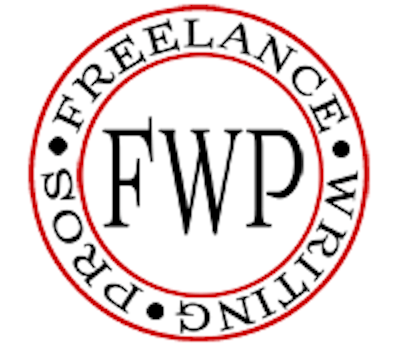New on the Blog
This week's new post at Freelance Writing Pros is about social media marketing. Some of you are probably all for it. And I know plenty of freelancers who don't want to bother, worrying it'll prove to be a waste of time.
In this post, I urge you to seek out some middle ground. Check it out if you missed it yesterday.
Get More Out of Social Media by Using Fewer Platforms
Is a Slow Site Costing You Clients?
Now let's talk about your professional website for a moment.
If you've been freelancing for years, you might have had the same basic website and professional blog all that time.Things might have slowed down.
Or maybe you updated the design without realizing your template or theme was bloated, and now it's slower than it used to be.
How a slow website can cost you.
There are two key problems with a website that loads slowly:
- It will drive away impatient visitors (prospects in this case).
- It can hurt your search engine rankings (and the warm leads Google sends your way).
Visitors won't always wait around for your website to load. So if you have un-optimized images or slow-loading scripts, you could push them to hit the back button rather than reach out about hiring you.
3 Free Website Speed Test Tools
If you've never tested your site speed before, or if it's been a while, here are some tools that can help.
Personally I'm not a huge fan of PageSpeed Insights, as I've never seen it's reported speeds accurately reflect any site I've tested. But you should run your site through all three at least to get their suggestions. And in that sense, Google's can be most important since it's their rankings you want to rise higher in.
I'm still working on speed enhancements for Freelance Writing Pros now that it's live and I can more thoroughly test things. But I can tell you from experience with All Freelance Writing that speeding the site up can significantly improve rankings, and therefore search engine traffic.
How Fast is Fast Enough?
I can't give you a hard-and-fast rule on how fast your site should load. And other sites will quote all sorts of ranges, from under 1 second to under 5. And if you built your site years ago, you might have based things on even older stats than that.
What I can do is share the rules I set for myself:
- I aim for 4 seconds or less for complicated, image-heavy or feature-heavy sites.
- For simple sites, I aim for under 1 second, but I tolerate 2 if there's good reason for it, such as slightly more resource-intensive plugins that are absolutely necessary for some reason.
Your optimal site speed is really as fast as you can get it to load, especially with more people using mobile browsing these days.
That said, before you get overly concerned about mobile speeds, consider how many of your visitors see your site in a mobile browser. While you might come across statistics such as 63% of Google's organic searches being from mobile devices, that doesn't always translate to your own site's traffic.
For example, over at All Freelance Writing, I cater mostly to desktop users because they make up 75-79% of my monthly traffic. It wouldn't make sense to strip features and such just to speed things up more for mobile users.
When you target people with business-oriented content, that isn't really surprising. Many -- most, in the case of writers -- still spend a fair amount of time in front of a desktop.
In a future blog post we'll look at specific things you can do to speed up your professional site to help improve your search engine rankings (and attract more clients).
For the meantime, give the above tools a try to see how quickly your site currently loads. And take note of site-specific suggestions they give you. It can give you a jump on making fixes. And at the very least, when that post goes up in the next couple of weeks, you'll know exactly which sections to follow along with.
Jenn
